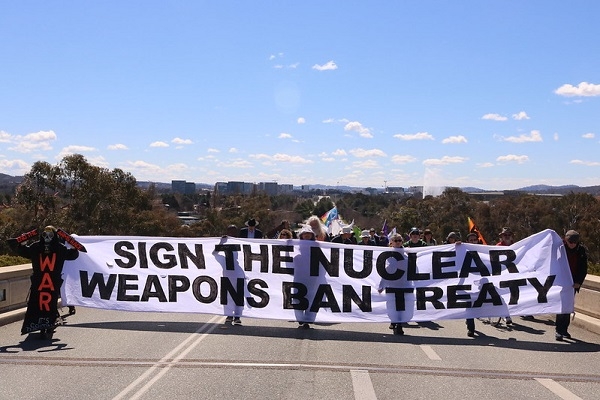Treaty on Prohibition of Nuclear Weapons implies 'Impracticality'
Total Views |
Washington, Jan 23: The Treaty on Prohibition of Nuclear Weapons was entered into force on Jan 22, 2021, that was adopted on July 7, 2017. The treaty is the first legally binding international agreement that aims to eliminate nuclear weapons completely. India does not support the Treaty on Prohibition of Nuclear Weapons and is committed to the policy of 'No First Use' against nuclear weapon states and non-use against non-nuclear weapon states.

The treaty prohibits the use of nuclear weapons on national territories. The signatories should provide adequate assistance to individuals affected by the testing of nuclear weapons. They should also take required environmental remediation in areas under its jurisdiction that was contaminated as result of nuclear weapon testing. The treaty was approved by the United Nations General Assembly in 2017. However, only 120 members have signed the treaty. The major nuclear powers of the world including India have not supported the treaty. The other major nuclear powers that did not support the treaty were China, US, France, Japan, North Korea, Russia, Pakistan and Israel.
A state party joining the treaty should declare if it has eliminated its previous nuclear weapon programme. The party should also disclose if it holds nuclear weapons of other countries in its territories. In case if the party holds other countries’ nuclear weapons it must remove them before signing the treaty. The non-nuclear weapon states should have a minimum safeguards agreement with the International Atomic Energy Agency. According to 2020 estimates, the estimated global nuclear warhead inventories are 13,500. Of this, more than 90 per cent belongs to Russia and the US. India holds 150 nuclear warheads. Russia holds 6,375 nuclear war heads and US holds 5,800 nuclear warheads whereas China holds around 320.
India does not support the Treaty on Prohibition of Nuclear Weapons. India is also committed to negotiations regarding the Fissile Material Cut-Off Treaty. FMCT is a proposed international agreement that prohibits production of enriched Uranium and Plutonium. India has also not signed Non-Proliferation Treaty and the Comprehensive Nuclear Test Ban Treaty.

